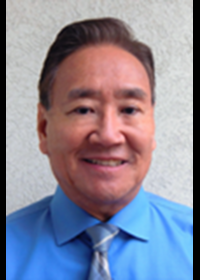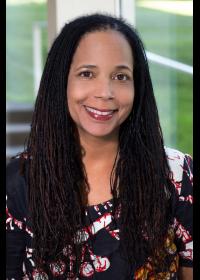We are honored to have two distinguished keynote speakers for this year's Big 10 Counseling Center Conference!

Keynote Title: Ecology and Engagement: Redesigning a More Inclusive Counseling Template
Eurocentric/Western counseling approaches have long been dominated by cognitive-based, psychotropic-aligned, mental health therapies, focusing on attitudinal shifts and symptom control/reduction to elicit behavioral and emotional changes in individual clients. These modalities have been more recently supplemented by holistic perspectives, mindfulness meditation, discoveries in modern neuroscience research, and expressive therapies. Still, the increasing urgency for distinct multicultural competencies and evolved ethical treatment to prevent/correct oppressive, injurious, ineffective, or inappropriate intervention have helped to spur the search for a more progressive template for counseling, including redefining misery mechanisms, healing processes, and health outcomes. Implicit in this endeavor has been a renewed openness to Global, Indigenous, and Eastern traditions, specifically the standards of collective lifeway, Nature engagement, full sensory consciousness, and spirit-rituals. Counseling, whether in higher education or community settings, is energized when contextual identity and ecological immersion are featured in theory and method.
Dr. Ogawa's Biography
Dr. Brian Ogawa has taught in the Department of Human Services at Washburn University since 2001 and served as department chair from 2006-2015. One of the features of the department is its integrative practices curriculum. In 2014, Dr. Ogawa was awarded the Ned N. Fleming Award for Excellence in Teaching, presented annually to the university’s most outstanding professor. Dr. Ogawa is a frequent international presenter and trainer at medical schools, universities, and conferences on Eastern therapies, post-trauma healing, hate and bias crimes, victimology, and multicultural competencies. He is also the Director of the Morita Counseling Education Center, and is recognized as the foremost Morita Therapy instructor and practitioner in the United States. Dr. Ogawa’s past appointments include Director/Division Chief of the Crime Victims' Institute for Policy and Research, Office of the Texas Attorney General; Director of the National Academy for Victim Studies, Department of Criminal Justice, University of North Texas; Director/Division Chief of Victim/Witness Assistance and Expert Testimony, Maui County, Hawaii Prosecuting Attorney; university-based mental health researcher; counselor in private practice; community non-profit administrator; university campus minister; and pastor of multiethnic and Native Hawaiian churches. Dr. Ogawa’s education includes a D.Min. in Counseling (San Francisco Theological Seminary); M.Div. in Theology (Fuller Theological Seminary); and B.A. in Social Sciences: Cultural Geography (University of California at Los Angeles).
Dr. Ogawa has been a consultant on many national research and curriculum projects on cross-ethnic approaches to death, dying, and bereavement; hate violence; multiculturalism; violence against women; and crime victim rights and services. He has served on numerous international and national boards and committees, including the National Advisory Council on Violence Against Women for the U.S. Department of Justice and Department of Health and Human Services; Diversity Committee, Center for Substance Abuse Prevention of the U.S. Substance Abuse and Mental Health Services Administration; Executive Committee of the National Organization for Victim Assistance; National Victim Assistance Standards Consortium; Chair, Multicultural Dimensions and Final Signatory, “New Directions From the Field,” US Department of Justice; and International Committee of Morita Therapy. In 1995, Dr. Ogawa received the National Crime Victim Service Award, presented by President Bill Clinton at ceremonies in the Oval Office at the White House, followed by a reception in the Roosevelt Room hosted by Attorney General Janet Reno. Dr. Ogawa’s advocacy for multicultural services and post-trauma counseling incorporating Morita Therapy were specifically noted.
Dr. Ogawa is the author of a number of book chapters and journal articles as well as the following books: Walking on Eggshells: Practical Counseling for Women In or Leaving An Abusive Relationship (Kendall Hunt); To Tell the Truth (Volcano Press; Denver Children’s Museum Edition), written to assist child victims through the criminal justice system; Color of Justice, 2nd Edition (Allyn and Bacon), regarded as the landmark study on minority crime victimization; A River to Live By: The 12 Life Principles of Morita Therapy (Xlibris/Random House); and Desire for Life: The Practitioner’s Introduction to Morita Therapy for the Treatment of Anxiety Disorders (Xlibris/Pearson).

Keynote Title: Radical Healing: The Role of Counseling Centers in Promoting Wellbeing and Social Justice
The hard truth about oppression in all of its forms is the capacity to leave scars for those who are dehumanized. Despite these social realities, people persist and thrive. Counseling Centers can play a role in healing such scars by working to transform college campuses to challenge the reproduction of oppression and to promote radical healing. In this presentation, I define radical healing or the process in which wellbeing is promoted through creating social justice spaces. Radical healing fosters justice, a sense of connection and belonging, struggle and resilience, self-knowledge, and hope. Practices to assist in radical healing at the system, group, and individual levels also will be discussed.
Dr. Neville's Biography
Dr. Helen Neville is a professor of Educational Psychology and African American Studies at the University of Illinois at Urbana-Champaign. She currently chairs the counseling psychology program and in the past she was a Provost Fellow at the same institution. Prior to coming to Illinois, she was on the faculty in Psychology, Educational and Counseling Psychology, and Black Studies at the University of Missouri-Columbia where she co-founded and co-directed the Center for Multicultural Research, Training, and Consultation. She is the president-elect of the Society of the Psychological Study of Culture, Ethnicity and Race (APA Division 45), the lead editor of the Handbook of African American Psychology, and a past Associate Editor of The Counseling Psychologist and of the Journal of Black Psychology. Dr. Neville has been recognized for her research, teaching, and mentoring efforts including receiving the American Psychological Association (APA) Graduate Students Kenneth and Mamie Clark Award for Outstanding Contribution to the Professional Development of Ethnic Minority Graduate Students and the Charles and Shirley Thomas Award for mentoring and contributions to African American students and community. She was also honored with the Association of Black Psychologists’ Distinguished Psychologist of the Year award and the Dalmas Taylor Distinguished Scholar award.
